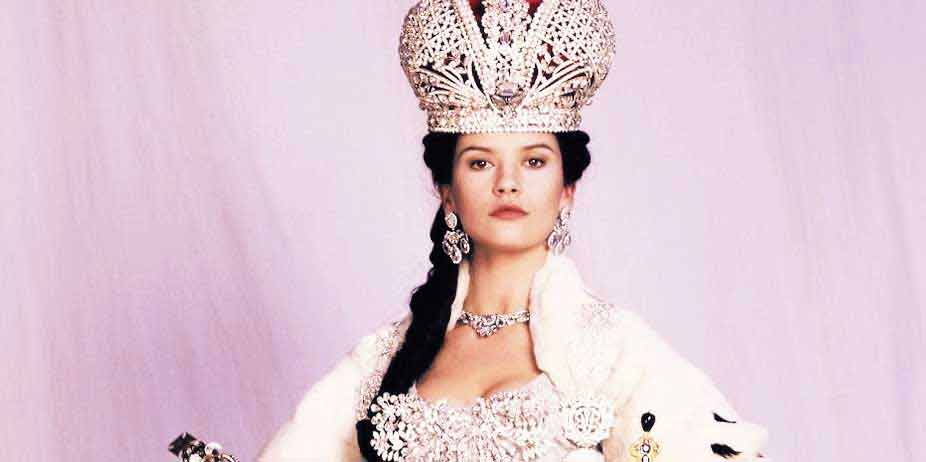
Catherine the Great (1995)
Before Catherine Zeta-Jones' career took off with her critically-acclaimed performance in The Mask of Zorro, she performed in a number of small television productions for Hallmark and A&E. Catherine the Great is one of them, based on the life of the young woman who was forced into a marriage of alliance with the Emperor of Russia but eventually became one of the most powerful female monarchs in history. The story of how she got there is corrupted and often immoral, but the result of her determination and courage make it an epic adventure of passion, scandal, and politics.
Married at fifteen, Catherine and her husband are ill-suited. Due to a medical condition he is unable to consummate the marriage despite his aunt's desires for an heir. In turn, the High Empress (Jeanne Moreau) hires one of the men of the court, known to be a playboy to seduce Catherine in the hopes that a child will result from the union. Catherine believes that this member of the court is truly and honestly in love with her, and is crushed when the truth comes out... that he was merely paid to woo and romance her. Catherine has learned at a young age that politics is a cruel game in which many of the players are often wounded. The lesson becomes even more poignant when she bears a son and the Empress takes him away without ever allowing her to hold or see him. From that moment on, Catherine determines her eventual place in Russia will be as the sole ruler. She is powerless to do anything until her mother-in-law's death but begins to plot her way to the throne.
Catherine realizes her husband loathes her and she knows once he is empowered he will have her ostracized in the favor of his mistress. Behind the back of the Empress' adviser Vorontzoy (Ian Richardson) Catherine creates an alliance at the front through their womanizing general. With the power of the troops, Catherine has the power to seize the throne at the Empress' death. Opportunity strikes and Catherine takes it... but there is political unrest, thousands of years of corruption, and backstabbing officials to contend with. And then she didn't reckon with falling in love.... This time it's for real, and with a young Colonel who would seek the service of the church rather than fight. But Catherine will forge through it all, and in the end will be known throughout the world as "Catherine Le Grande." Catherine... the Great. After her rise to power I truly began to enjoy the film as Catherine battled the Turks and fell for a young military officer. But it disappointed me that in spite of his professions of faith, he soon became intimate with her. And although Catherine has a few attributes to admire, she certainly sets a poor moral example.
Sexual Content:
Twice Catherine's full bare back and most of her side are seen; in one scene, her husband rapes her. Cleavage. The Emperor tells a dirty rhyme. Catherine is undressed by a lover; sex is implied at least four times. The side of a nude woman is seen as a man is snatched from his tent.
Language:
Mild; includes mild abuses of deity ("Oh, God!).
Violence:
Battle scenes include explosions, stabbings, and guns fired. Men are seen bloodied and wounded. Several brawls erupt, one including a man's eye being nearly put out. A man is attacked in his home and strangled with wire; another in a prison, but the latter manages to escape. He is later beheaded (implied).
